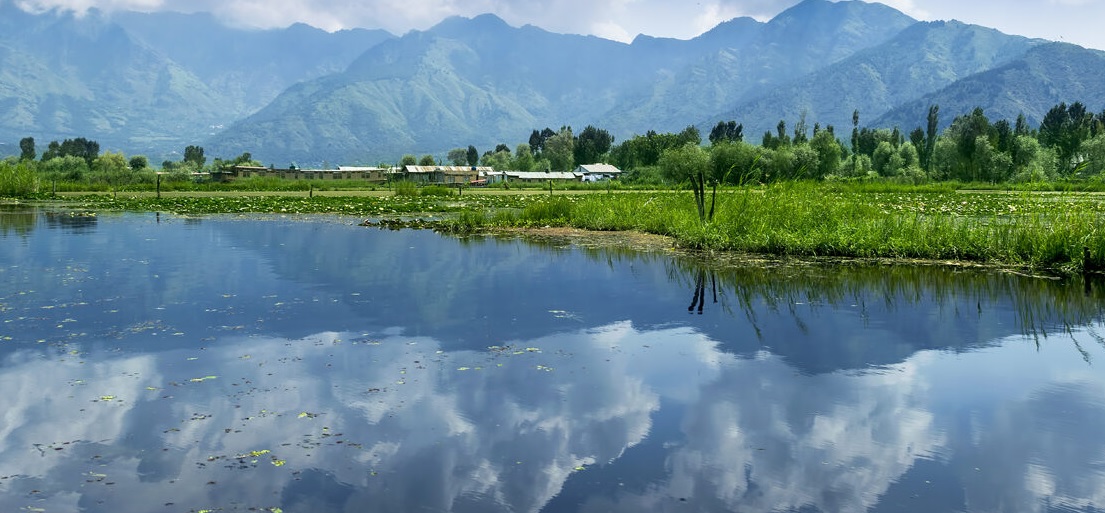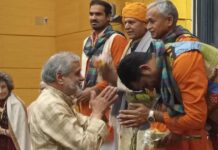Recently critics of India have begun to use the language of “settler colonialism” to accuse the Indian government of occupying the Indian Union Territory of Jammu and Kashmir. But does this terminology make sense given the complex history of Kashmir?
More importantly, what does calling India a settler-colonial state do?
Calling India a settler-colonial state in Jammu and Kashmir further emboldens Pakistan’s continued proxy war in which Hindus, Sikhs, and migrant Muslim laborers are targeted and killed, and women and LGBTQ individuals are denied their rights.
To find out what calling India a Settler Colonial State in Kashmir does, let’s take a look at the history of the region and how this term came to be applied to Kashmir today to find out. But first, what is settler colonialism?
Settler colonialism is defined as the destruction of “indigenous peoples and cultures in order to replace them and establish themselves as the new rightful inhabitants.” Under this definition, if India was occupying Kashmir as a settler-colonial state it would be displacing the indigenous population. The indigenous population of Kashmir, however, has already been displaced. Hindus indigenous to the Kashmir Valley, known as Kashmiri Pandits, are the original inhabitants of Kashmir and have a unique ethnoreligious culture that dates back more than 5000 years.
In 1947, after the region was divided, some 41,000 Hindus indigenous to Pakistan-Occupied-Kashmir fled from the dangers and persecution they were facing. Violent anti-Hindu riots in 1984 and 1986 were followed by a concerted effort to ethnically cleanse Kashmiri Hindu Pandits and Sikhs from the Kashmir Valley between 1989–1990. Killings, rapes, destruction, and other acts of violent intimidation were used to drive out Hindus from the land. At least 350,000 Kashmiri Hindu Pandits became refugees in their own country, finding refuge in Jammu, New Delhi, and other parts of India.
Historically, Kashmir was inhabited by Hindus and Buddhists and had a majority Hindu population until the 14th century. As the region was taken over by Islamic invaders from Central Asia, the indigenous population of Hindus and Buddhists was gradually replaced, eventually becoming overwhelmingly Muslim.
In May 2021, the Harvard Law Review published a student piece which was presumably the first time that the concept of settler colonialism was applied to the Indian Union Territory of Jammu and Kashmir. The article titled “From Domicile to Dominion: India’s Settler Colonial Agenda in Kashmir” was soon picked up by news agencies as a way to describe the tension in Kashmir throughout 2021.
Notably, the article glossed over the ethnic cleansing of Hindus from Kashmir from 1989–1990, despite putting the Armed Forces (Jammu and Kashmir) Special Powers Act (AFSPA) of 1990 at the heart of the argument that India is a settler-colonial state. “Although the definition of what constitutes “disturbed” is vague,” the article states confusedly, “the determination is the central government’s authority and is not subject to review.” The ethnic cleansing of Kashmiri Hindus that was the disruption is, for some reason, unknown or purposefully whitewashed by the authors.
In 1947, the Princely State of Jammu and Kashmir with the support of the largest Kashmiri political party legally acceded to India, promising a plebiscite in the future. This means that the leadership made the decision that Jammu and Kashmir will be part of India, and a vote would later be held to confirm this decision. The legal accession followed an invasion of Jammu and Kashmir by the Pakistani military in conjunction with tribal militias, who sought to take control, and committed mass atrocities on Kashmiris, Hindus and Muslims alike. Then, in 1948, the United Nations, in resolution 47, provided a plan for holding a plebiscite, which was predicated on all Pakistani military withdrawing from the region in order for a plebiscite to be held. Pakistan responded by increasing its military presence. Thus, no plebiscite was ever held.
This UN Security Council resolution also held certain conditions for a plebiscite to occur, including: “(d) Minorities in all parts of the State are accorded adequate protection;” and “(e) There is no victimization.”
If we consider the 41,000 Kashmiri Hindus that fled in 1947, the ethnic cleansing of over 350,000 Kashmiri Hindu Pandits, and the sustained persecution of Hindus and Sikhs in Kashmir until today, it is clear that Pakistan’s military and proxy forces have not heeded these conditions.
Since the accession of Kashmir to India in 1947, Pakistan has created a proxy war in Kashmir, in which 15,000 people, mostly Muslim civilians, have been killed by terrorist groups. The Indian government has continuously fought terrorist forces in Kashmir, which have also carried out numerous terrorist attacks in other parts of India, including the 2008 Mumbai terrorist attacks which left 165 people dead.
With the rise of the Taliban in Afghanistan in 2021, there was a renewed call for violence against Hindus and Sikhs in Kashmir. In September, the Taliban claimed that they would “speak for Muslims in Kashmir.” The following month, there was a spate of targeted killings of migrant workers from elsewhere in India or the individuals from the minority Hindu and Sikh communities.
Kashmir is a place whose rich history, diverse people, and spiritual landscape have deep meaning for Hindus throughout the world. It always has been and always will be an integral part of the Indian civilizational state. The continued attempts to disenfranchise the Hindus and Sikhs in this land continues today with extremist forces who kill Hindus and Sikhs and claim that the Indian government that fights extremist activity is a colonial power.
Creating the idea that India is a settler-colonial state is a project that does nothing to improve the human rights conditions in the region.







